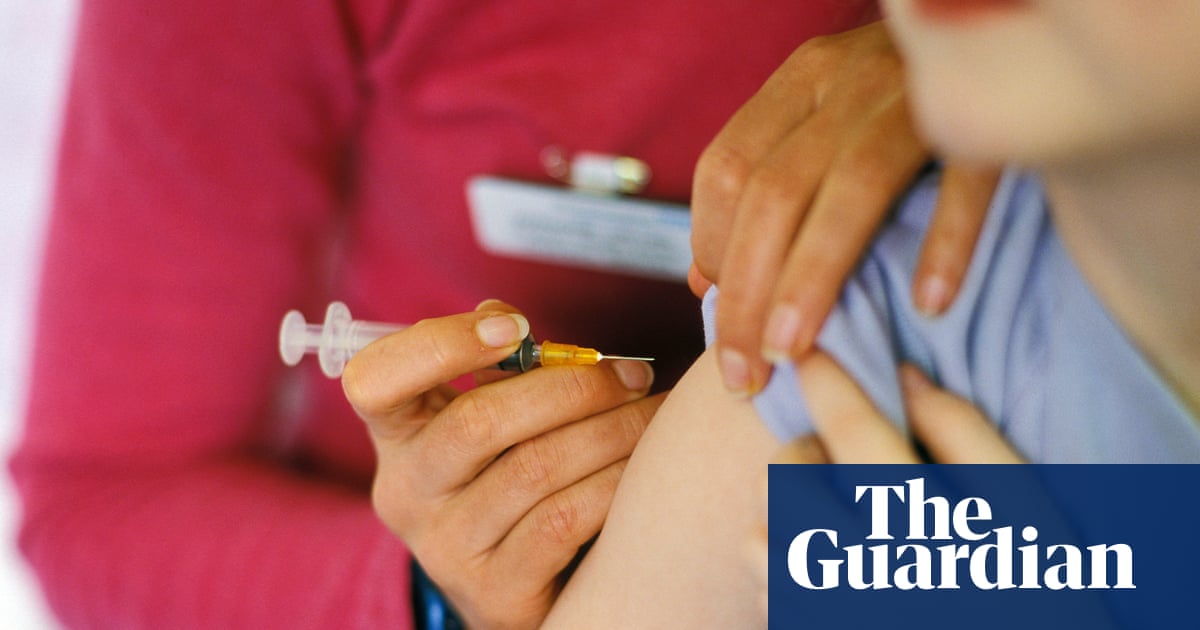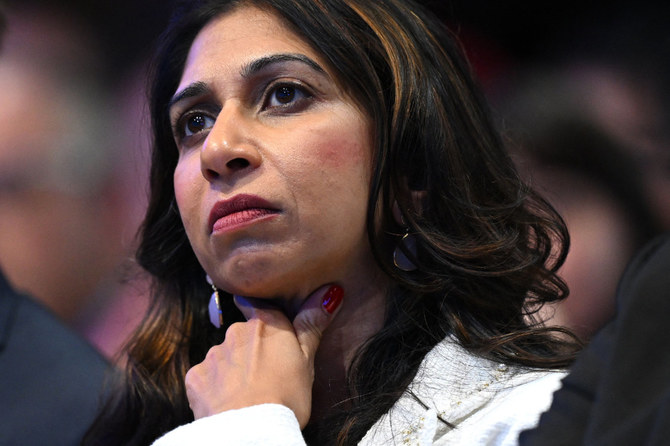
In September 2017, Britain was basking in the glory of a public health success story. No indigenous cases of measles had been recorded for three years. Decades after a sham study threatened to permanently undermine trust in the MMR jab, which protects against measles, mumps and rubella, the World Health Organization declared the disease had been eliminated for the first time in the UK.
Dr Mary Ramsay, then head of immunisation at Public Health England (PHE), expressed delight. “This is a huge achievement and a testament to all the hard work by our health professionals in the NHS to ensure that all children and adults are fully protected with two doses of the MMR vaccine.”
The WHO accolade came with a warning shot, however. “We cannot become complacent,” said Zsuzsanna Jakab, then WHO regional director for Europe. “Outbreaks continue to cause unnecessary suffering and loss of life. Routine immunisation coverage is decreasing.”
Less than two years later, the UK had been stripped of its measles-free status.
Today, the country is in the midst of a measles emergency. Public health officials are scrambling to stem an alarming tide of infection. And the UK Health Security Agency (UKHSA), which replaced PHE during the Covid pandemic, has been forced to declare a national incident, signalling a major public health risk from one of the world’s most contagious viruses.
Hundreds of children have been sickened by measles in recent weeks. Officials fear a growing outbreak in the West Midlands could spread to other towns and cities unless urgent action is taken to boost vaccination uptake.
A staggering 3.4 million under-16s are at risk of getting the virus, officials believe, and letters are being sent to parents of unvaccinated children. GPs are setting up extra clinics and vaccine buses are targeting communities with low vaccination rates.
The unfolding crisis has alarmed the UK’s top health officials.
“We’re at a point where there’s a very large susceptible population of children,” Prof Sir Andrew Pollard, chair of the Joint Committee on Vaccination and Immunisation, told the Guardian in an interview this week. “To keep measles at bay, we need to have over 95% of children vaccinated. The NHS figures suggest that we’re at about 85%.”
Data released by the UKHSA showed there have been 216 confirmed measles cases and 103 probable cases in the West Midlands since 1 October last year. Four-fifths (80%) were found in Birmingham, while 10% were identified in Coventry. Most were in children aged under 10.
“Now that it’s got started, with a virus that is so infectious – it’s much more infectious than Covid was – then if there are people who are unvaccinated, it can spread like wildfire,” said Pollard. “The reason why that’s so worrying is that it then finds individuals who rather than just getting a horrible illness, will actually get serious complications or die from it.”
In some people, measles can affect the lungs and brain and cause pneumonia, meningitis, blindness and seizures. Pollard said: “There are some risk groups: people whose immune system doesn’t work well, children on cancer treatments for example. Younger children are more at risk than older children from severe complications. But there will also be some completely healthy children who can get very severe illness or even die from this virus.
“It’s extremely worrying to be in this situation where the spark of this fire has started, we don’t quite know where it will end, but we could stop it if we got vaccines out there to protect children.”
So how did Britain go from eliminating measles to the brink of a measles catastrophe? Why have MMR vaccination rates fallen? And how can the country get out of this mess?
Experts say a combination of factors is likely explain the fall in vaccination rates – and the measles crisis now engulfing Britain.
The rise in cases is partly a legacy of the pandemic, says Prof Stuart Neil, head of the department of infectious diseases at King’s College London. Vaccinations against many diseases, including measles, were neglected as people focused on Covid. “Vaccine uptake has fallen across the board over the pandemic partly because of hesitancy to go to doctors during it,” he said.
Another challenge is that the children who missed their first jabs between 2020 and 2022 are now older than the age group typically seen routinely at GP surgeries for vaccination programmes. In the UK, children are offered two MMR doses – first at age one, then at three years and four months. But if your child was born during the pandemic, they may have been missed and need to catch up.
“It is never too late to get vaccinated,” said Dr Doug Brown, chief executive of the British Society for Immunology. “We encourage parents to ensure their children are up to date with their MMR vaccines and catch up on any missed ones as soon as possible.”
Pollard said there had been a “gradual decline” in MMR coverage for years before the pandemic, which had cumulatively increased the threat of a full-blown measles crisis.
“In one year that’s manageable but successively over years you build up this increasing pool that allows the virus to transmit,” he said. “If you think about the accumulation of cohorts of children over several years, each year that you have low coverage, there’s more and more children added to this pool of susceptible people, which means that when the virus does arrive, you can have these explosive outbreaks.”
Falling vaccination rates and the demise of Britain’s measles-free status also stems from people not knowing – or forgetting – about the risks of measles. “Due to the success of the UK immunisation programme, many parents will have no first-hand experience of measles,” said Dr David Elliman, a paediatrician at London’s Great Ormond Street hospital. “It would be a great tragedy if we have to learn from the sad deaths of children, before the disease is taken seriously.”
Bogus claims made in 1998 by Andrew Wakefield about the MMR vaccine still have an impact, says Prof Helen Bedford, professor of children’s health at the UCL Great Ormond Street Institute of Child Health. Not because the false claims still hold weight with the public, but because children not vaccinated due to the scare are now adults – and may be helping the virus to spread.
“Over 25 years ago, MMR vaccine uptake fell because of highly publicised but subsequently discredited research suggesting a link with autism,” said Bedford. “Unsurprisingly, given the intense media coverage at the time, many parents preferred not to have their children vaccinated. Those children are now young adults.
“Over the years, the number of unvaccinated people has accumulated in the population, enabling measles to take hold and spread quickly within communities.”
Most experts agree that misinformation about the MMR jab is very unlikely to play a significant role in declining vaccination rates. “It is too easy to blame anti-vaccine sentiment for the measles outbreaks,” said Bedford. Although some mistrust of vaccines may play a small part, research shows that parental vaccine confidence remains high, she added.
“Asking questions about vaccination is to be encouraged, but we need trained staff to do this, and the NHS and general practice are under significant pressures, with cuts to funding and staffing.”
Pollard believes families struggling to access vaccination programmes is a much bigger factor than misinformation. “We know the greatest pockets of low coverage are in the parts of the country where families find it hardest to access vaccination services,” he said.
Nationally, strategies promised by the NHS and government to boost vaccination rates urgently need to be enacted, says Dr Ronny Cheung of the Royal College of Paediatrics and Child Health.
NHS England recently published its vaccination strategy, which focused on addressing challenges around access and included proposals to provide flexible and convenient vaccination services. “This is an extremely welcome development but we are concerned that implementation plans for this strategy are not nearly as ambitious as we need them to be,” said Cheung. “The current aim is full implementation by 2025-26.
“Two years seems an unacceptably long wait. We’re already arriving late to this work and are feeling the effects of low uptake, particularly in the MMR vaccine. This is urgent – we must get to work straight away.”
Pollard points out that the UK is not unique when it comes to rising cases of measles. Seven years after the WHO warned the then measles-free UK against complacency, this week it warned of a 30-fold rise in cases across Europe.
More than 30,000 cases were reported by 40 of the region’s 53 member states between January and October last year, compared with 941 cases in the whole of 2022. Two in five cases were in children aged one to four, while one in five were among people aged 20 and over.
“There are measles outbreaks happening all over the world,” said Pollard. “This is a worrying moment globally.”
The only way out? Increase vaccination rates by encouraging parents to get their children jabbed against measles, experts say. “The virus is spreading today so we need to be vaccinating children today,” says Pollard. “There isn’t any time to wait. This is urgent and tomorrow may be too late.”












